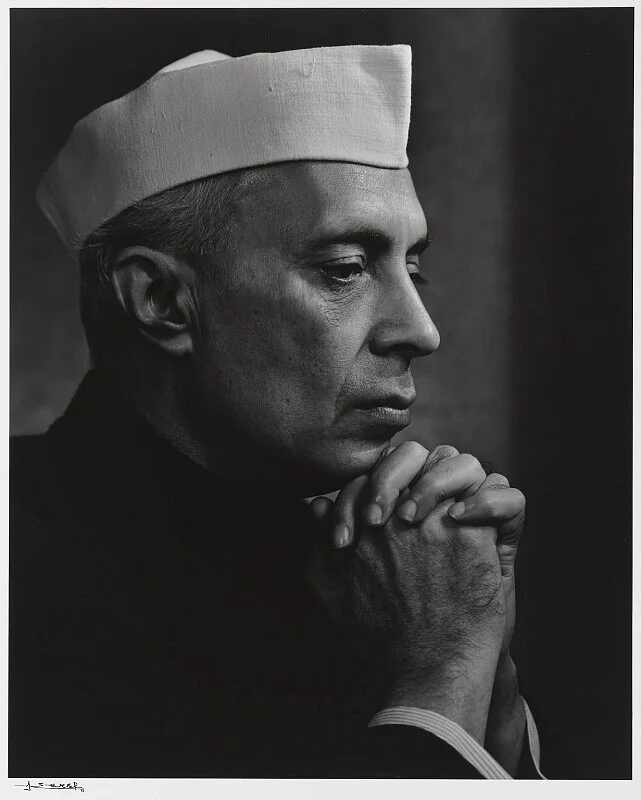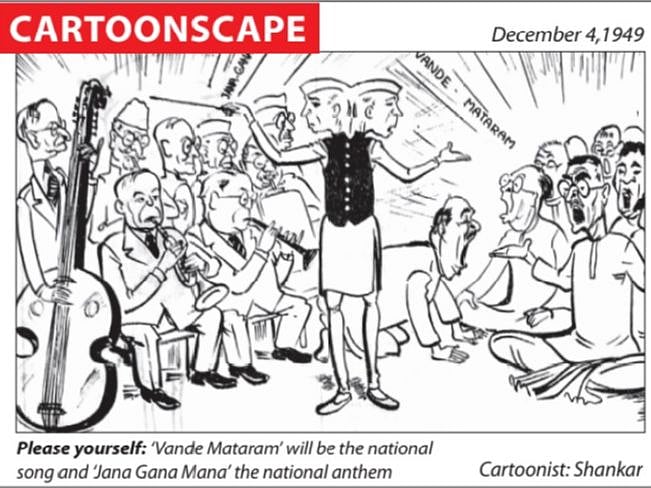Nehru’s Word: ‘I do not like being told what to think’
'I suppose my father and Gandhiji have been the chief personal influences in my life. But outside influences do not carry me away. There is a tendency to resist being influenced'

For around 15 months now, this column has been bringing you examples of what Jawaharlal Nehru thought, spoke and wrote about a wide range of subjects ranging from history, science and elections to peasants, fascism and foreign policy. This week we bring to you a rare document in which Nehru talks about himself: his likes and dislikes, what he reads, who has influenced him the most, whether he is a socialist, and how many times he had to go to jail. This was in a reply dated March 16, 1938 to a request from John Gunther, an American journalist and writer.
---
“Being an attempt, not altogether successful, to answer the questions put to me. What books do I read? During the last two years I have had little time to read books. But I get a fair number of new and old books and dip into them from time to time. One of my grouses with my present mode of existence is that I do not get the chance to read as much as I want to. My interests in books are fairly catholic.
"Inevitably I want to read political books and those dealing with present-day problems. My early education has given me a taste for science and I try to keep in some kind of vague touch with scientific developments. History interests me and so does travel, especially old books of travel or modern books dealing with out-of-the-way places -- deserts, polar regions, jungles. I read very little fiction, except for a few well-known authors. Poetry has always attracted me and I go to it sometimes for relaxation. I do not feel much at home with some of the modern poets.
"Among the English and American periodicals I have subscribed to regularly for many years are: The New Statesman, The Manchester Guardian Weekly, Time and Tide, The New York Nation, The New Republic, The Living Age. Other periodicals come and go. I used to get The Times Literary Supplement and sometimes the Literary Digest, etc., but they have dropped off for lack of time to read them.
"I should like to get the Labour Monthly of London as well as some other Leftist periodicals but they are not allowed entry in India. I get the Tribune of London. Also, a number of foreign periodicals come to our office and I see them occasionally.
"I have had no time for many years for any other distractions apart from reading and sometimes writing. As a boy I collected postage stamps. I love winter sports but have no chance in India. I used to be fond of riding, and enjoy a swim.
"I suppose my father and Gandhiji have been the chief personal influences in my life. But outside influences do not carry me away. There is a tendency to resist being influenced. Still, they work away slowly and unconsciously. My wife influenced me considerably in many ways, though unobtrusively.

"The reading of Karl Marx and Lenin had a powerful effect on me. That effect was partly concerned with the content of what I read. But even more so with the manner of treatment of the subject. I was tired of the mystical and metaphysical approach to life's problems, and the clear, scientific, analytical and unadorned method of treatment and approach appealed to me tremendously. It seemed to resolve many of my doubts and made me understand past history and current events better.
"Some years previously, I was influenced in the same way by reading Bertrand Russell's books. I like them very much even now but I began to have a feeling of ineffectiveness about them. I appreciated greatly also some of Niebuhr's books. When I read Spengler I disliked him. And yet I found a certain fascination in his enormous survey of human activity.
"I am afraid I cannot give any names of my intimate friends. I have a fairly large circle of friends, which includes people in England, France and America. But when it comes to real intimacy the circle narrows down tremendously.
"I do not quite know what I am. I am certainly a socialist in the sense that I believe in the socialist theory and method of approach. I am not a communist chiefly because I resist the communist tendency to treat communism as holy doctrine and I do not like being told what to think and what to do. I suppose I am too much of an individualist. But my general approach is largely Marxist, though not in a technical sense.
"For instance, I am not frightfully excited about the theory about surplus values. I am not a good enough economist to have a definite opinion about the fine points of communist economic doctrine. I feel also that there is too much violence associated with the communist method and this produces untoward results, as in Russia in recent years. The ends cannot be separated from the means.
"I realise, of course, that there is quite as much, if not more, violence outside communism, and that the whole of our social structure is based on it. I am not prepared to say that violence must be ruled out but I should like to lessen it as far as possible, and any method which increases it encourages a wrong tendency.
"My health has been and is good. In prison I had a touch of pleurisy twice and this distressed and troubled me for some months. But I got over it. I suppose there is some remains of it hanging about but my general good health keeps it down.
"I have had seven terms in prison. Total period of sentences: ten and a half years; longest sentence: two and a half years plus fine. Other sentences varying from six months to two years, sometimes with brief periods outside. Total period actually spent in prison: five and a half years. This added to jail remissions for good conduct amounts to nearly seven years. Longest period at a time: a little under two years….
"What do I like most? Difficult to say. I like mountains and glaciers very much, and running water in the hills. Yes, I like lettuce salad and good conversation and animals and flowers, and swimming and riding. Perhaps one likes most the things one is deprived of. I had an intense feeling of enjoyment once in prison. This was in the hot weather when the temperature was about 116°F, and for a long time past I had not had a cold drink. My wife sent me a thermos flask filled with iced sherbet and I did enjoy that.
"I do not think I care at all for a fight as such. And yet intense activity in the midst of conflict does give me a sense of inner satisfaction. I feel rather at home then."
(Selected and edited by Mridula Mukherjee, former Professor of History at JNU and former Director of Nehru Memorial Museum and Library)
Follow us on: Facebook, Twitter, Google News, Instagram
Join our official telegram channel (@nationalherald) and stay updated with the latest headlines